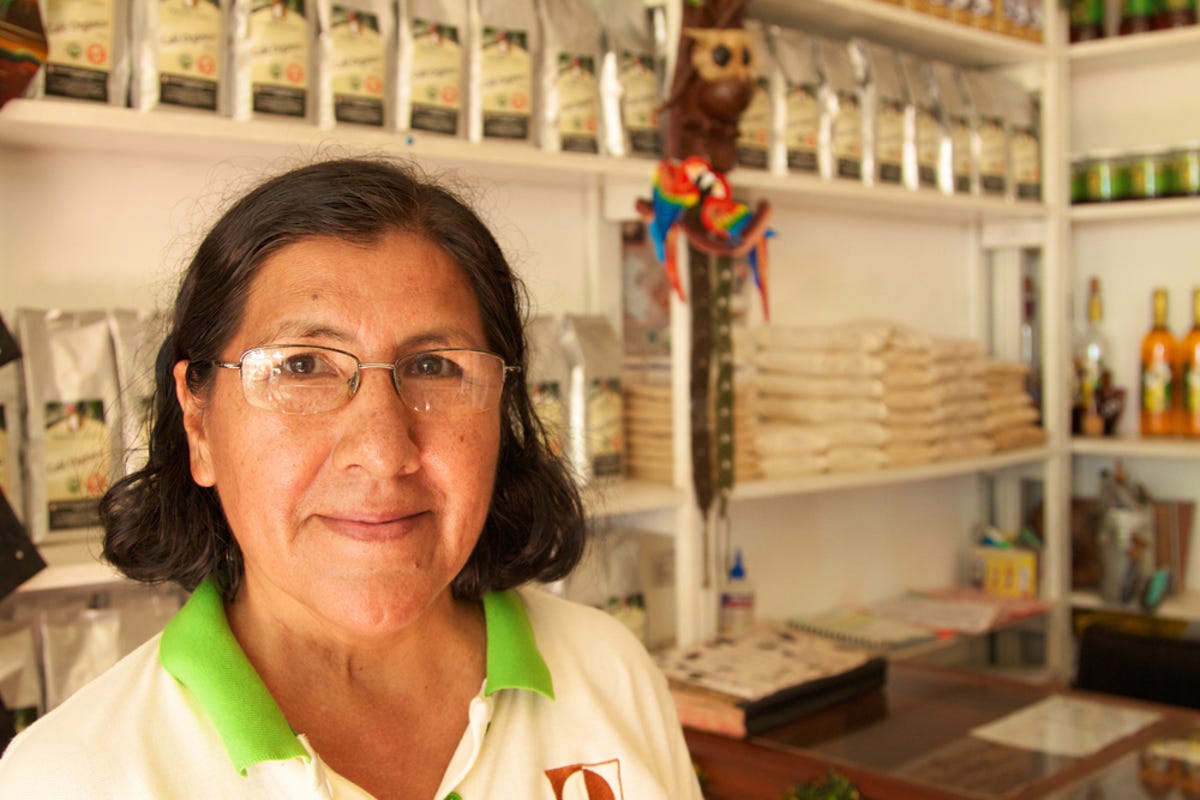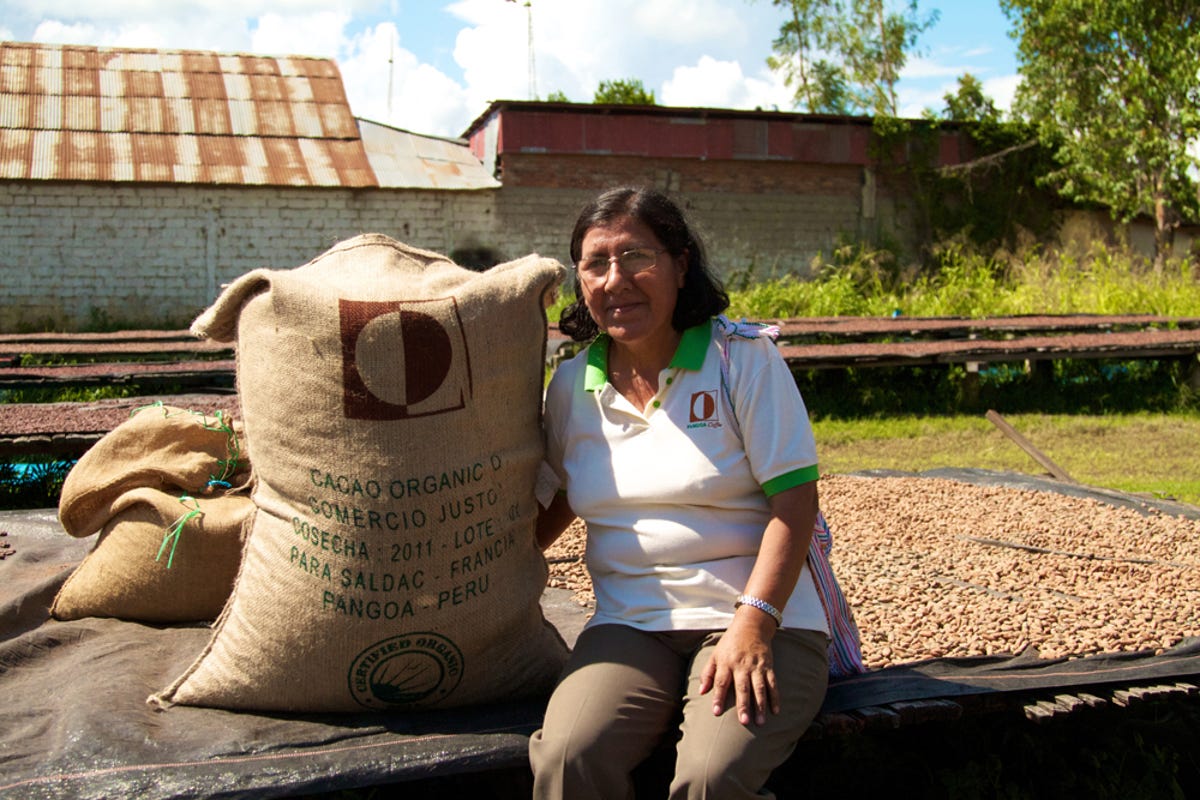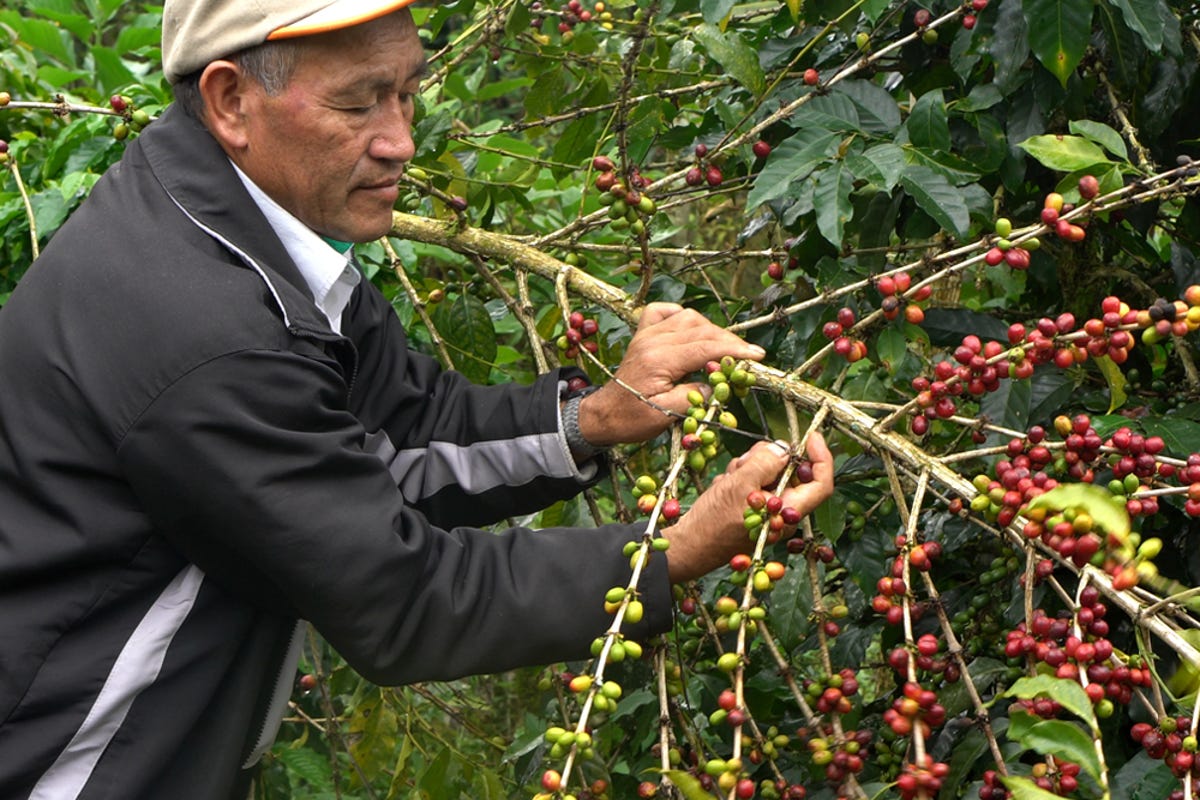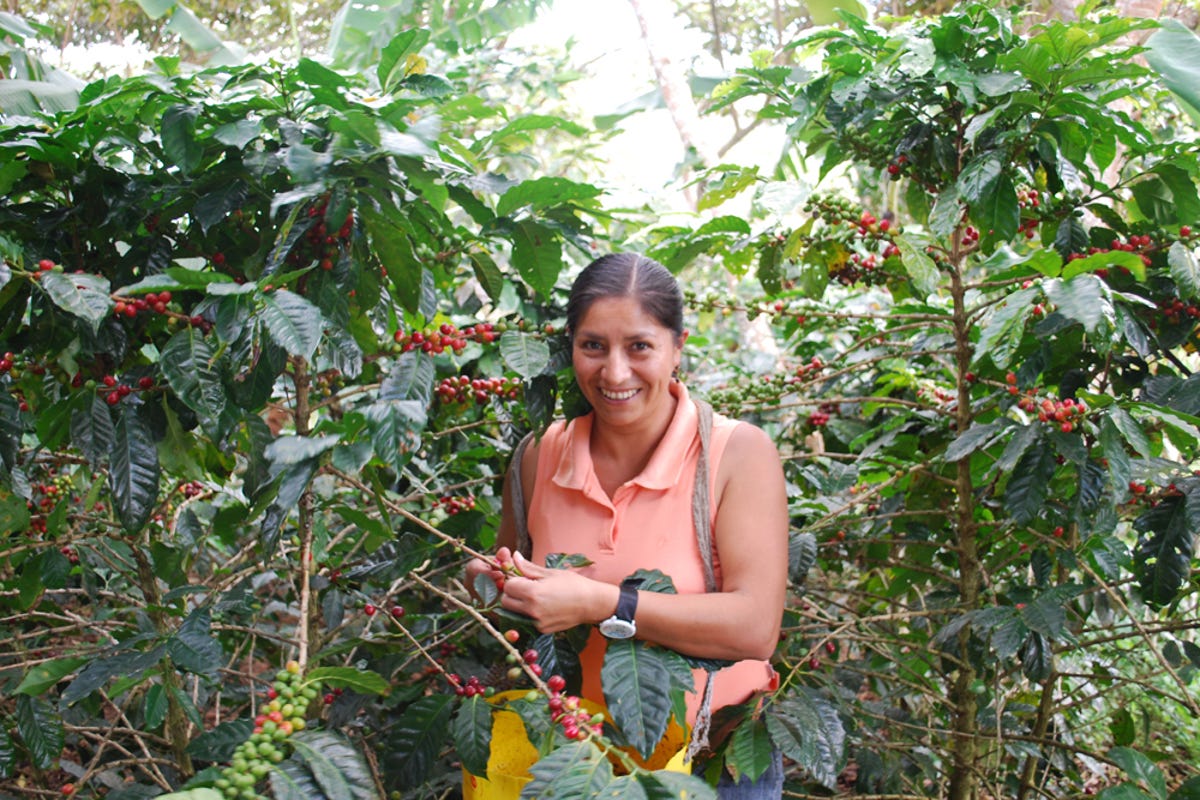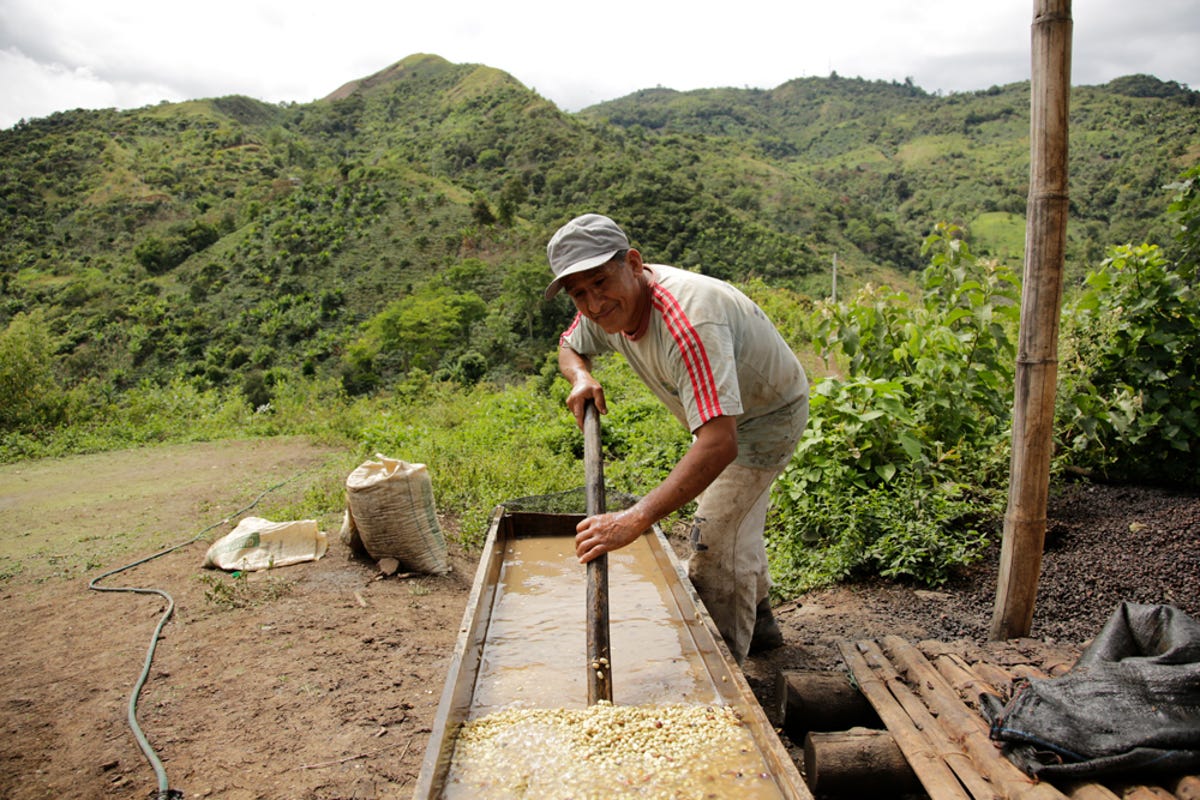From climate science to field action
Root Capital is pioneering how to bridge the gap between climate science and farm-level action, bringing climate-smart strategies into the daily practice of growing food crops successfully.
© Root Capital
The science is clear: climate change is here and accelerating. The good news is that climate scientists can, with reasonable certainty, predict the impacts of climate change on crops within a given area for different time horizons. They are even able to identify the form these impacts are likely to take in terms of changes in temperature and rainfall patterns. This data, available on the open access data portal Climate Change, Agriculture and Food Security, can inform farmers’ decision-making to help them prepare for and mitigate the effects of these coming changes.
Root Capital is a non-profit social lender that provides financing and training for small and growing rural agricultural businesses and cooperatives in poor, environmentally vulnerable regions of Africa, Latin America, and Indonesia. These enterprises collect and market crops such as coffee, cocoa or grains on behalf of hundreds and often thousands of scattered smallholder farmers. To help these agricultural enterprises and cooperatives grow and thrive together with the rural farmers and communities that supply them, Root Capital offers tailored support that includes credit, financial and agronomic training and critical market connections. Since 1999, it has disbursed $1.5 billion in loans to 735 businesses, improving the livelihoods of nearly 10 million people in farming families.
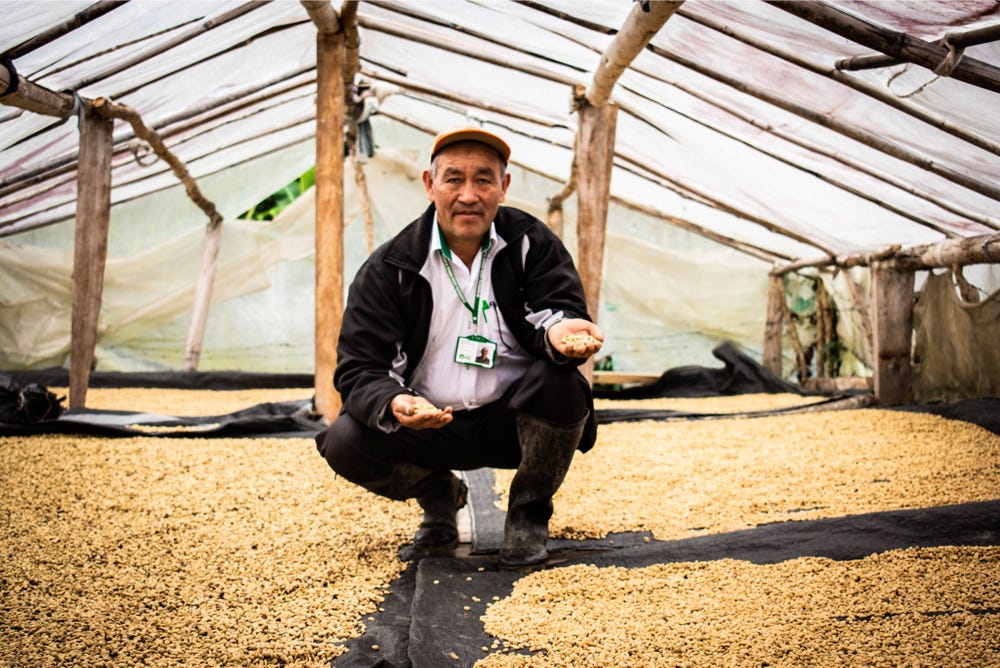
© Root Capital
Root Capital is acutely aware that the challenges these families face have never been greater. In recent years, temperature volatility has exacerbated crop diseases, unpredictable rainfall has shifted the harvest, and extreme weather events like floods or droughts have devastated farms. In places like the Peruvian Amazon – where Cartier Philanthropy funds Root Capital – climate change has led to decreased yields that are imperilling the incomes of local farmers on a previously unimaginable scale.
Kate Hyder, Root Capital’s Director of Innovation, details the challenge: “The impacts of climate change are particularly acute for farming families who often live from harvest to harvest. But climate change impacts us all. In our globalised world, a threat to farm production and farmer livelihoods means disrupted supply chains, exacerbated inequality, further pressure on natural resources and increased migration.”
Root Capital has therefore expanded its advisory support to offer agronomic climate adaptation services that use best-in-class climate data to equip agricultural enterprises with the tools they need to help the farmers that supply them meet the challenges of the current climate crisis. Advisors work with cooperative leaders to compare specific, farm-level data with climate mapping from organizations like the International Center for Tropical Agriculture, which show the predicted impacts of climate change on factors like rainfall and temperature. This data enables Root Capital’s advisors to understand which farmers are most vulnerable to climate change and to design an effective tailored response, thereby democratising climate action for agricultural businesses and the farming families that need it most.
Here’s an example of how it works:
In coffee-growing communities located in the foothills of the Andes, the terrain can climb hundreds of metres between neighbours, making this climate mapping vitally important. It means that if a low-altitude farmer near a river is identified as being at acute risk of rising temperatures or floods, her cooperative’s agricultural support team can provide fast-growing replacement crops like bananas or beans to help her quickly move away from coffee to sources of income that will work for her. But at the same time, they can also help her high-altitude neighbour gradually replace his aging coffee plants with sturdier varieties.
These tailored adaptation plans – which can even be personalised within the same community – ensure that each cooperative and every farmer can effectively allocate their resources where they’re needed most.
“To be effective, climate action must be data-driven and localised,” Hyder explains. “Agricultural enterprises need timely, relevant data on climate risks as well as insights on the adaptation strategies most promising for their contexts”.
Following early successes, Root Capital is now scaling up its digital-enabled climate adaptation services across the globe, bringing the power of science and data to the farming families and rural communities that need it most.

